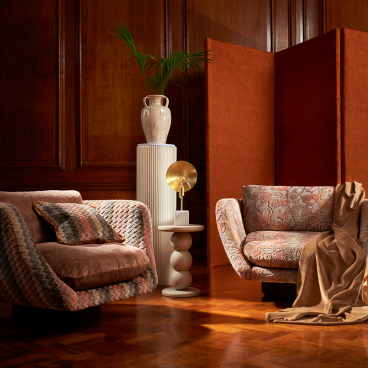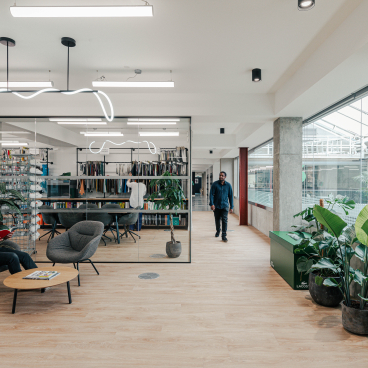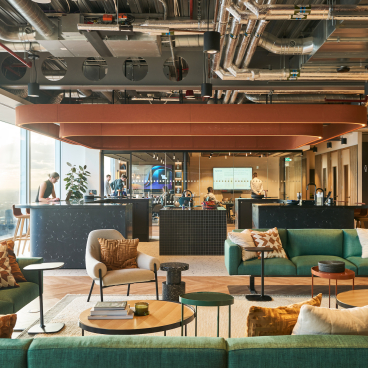Social hub by SpaceInvader cultivates community at Eden, New Bailey - one of UK’s most sustainable buildings.
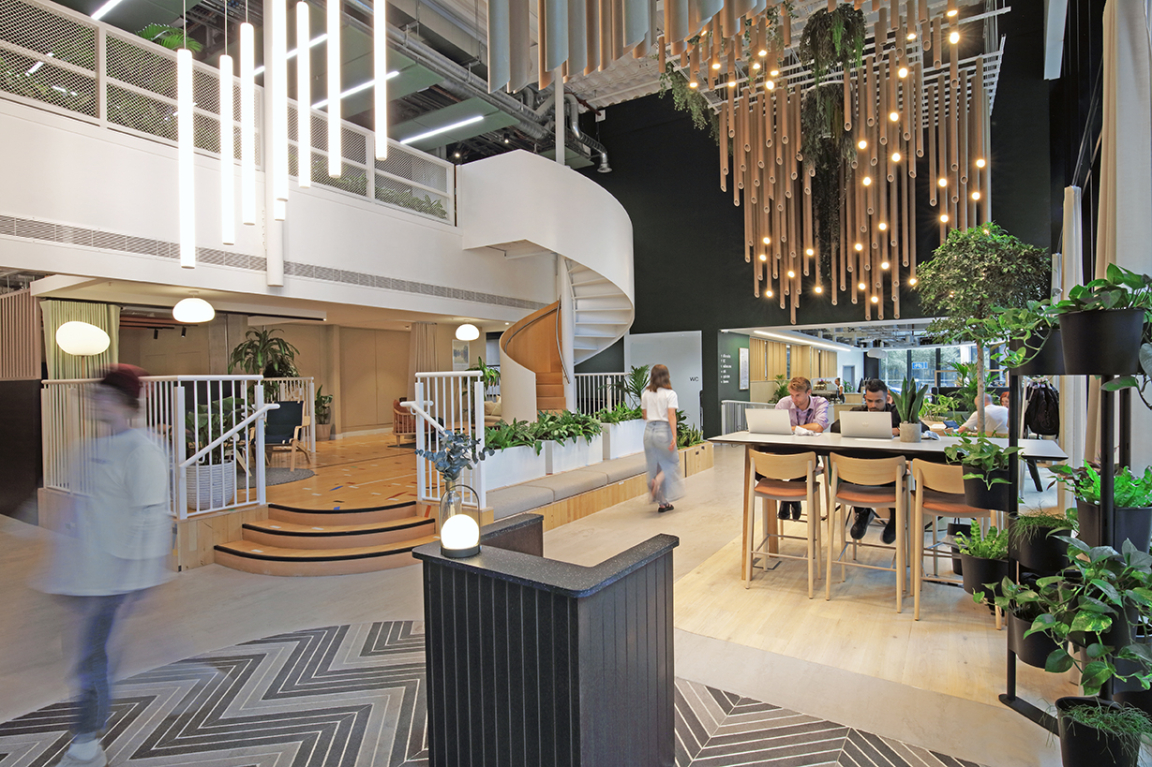
Credit: Pip Rustage
A social hub now sits on the ground and mezzanine floors of Eden, New Bailey - a newly-completed £36m office building in Salford - and one of the most sustainably-sound buildings in the UK.
Crafted by SpaceInvader, the multi-use space - comprised of 3,067 sq ft on the ground floor and a further 1,130 sq ft on the mezzanine level - responded to the client's brief requesting the design of a cohesive hub offering, which embodied both the needs of tenants and the local community. All while harmonising with the building’s exterior and offering optimum sustainability credentials.
The key to achieving the required cohesion was to make the space busy and active through a series of amenity provisions, offering local-operator F&B, co-working and collaboration areas, alongside wellness and retail/events spaces available to the local community. Along with a strong sustainability narrative, the interior spaces also needed to support user wellbeing.
The resulting design concept was ‘flourish’, inspired by the stunning, living external façade, which beautifully wraps the building. With this in mind, reclaimed, low VOC and carbon-conscious materials were selected for the sustainably-focused scheme.
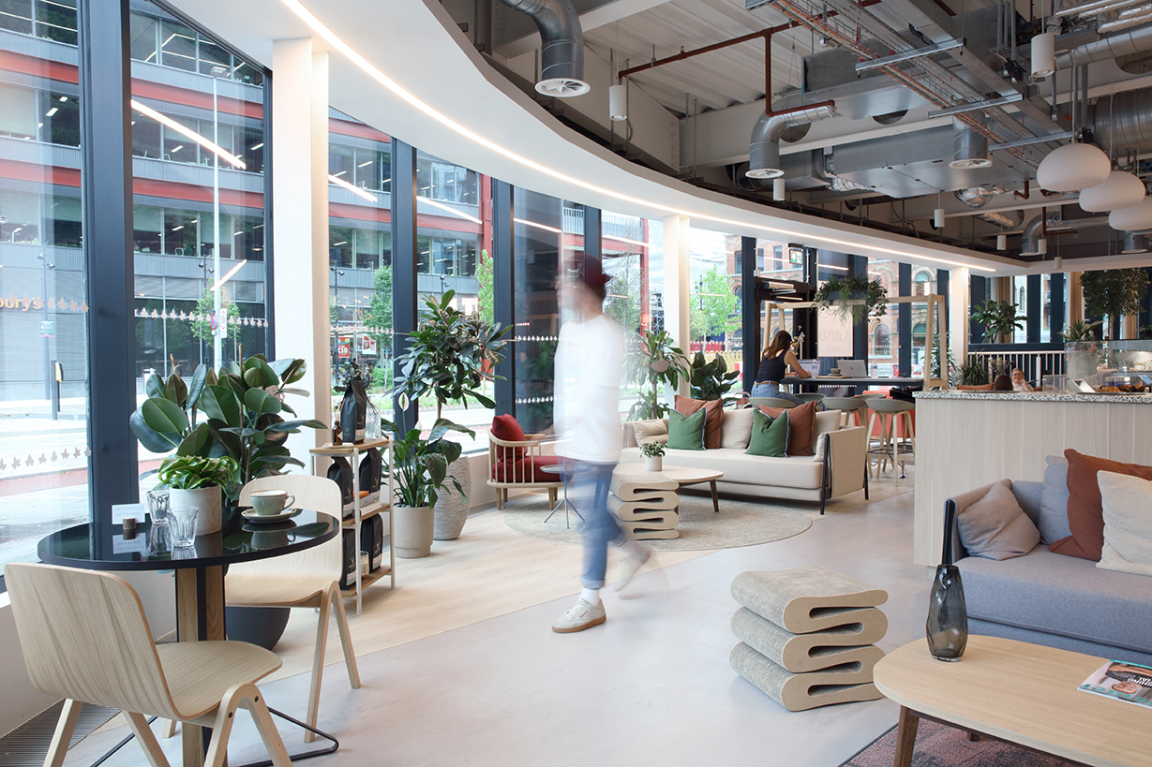
Credit: Pip Rustage
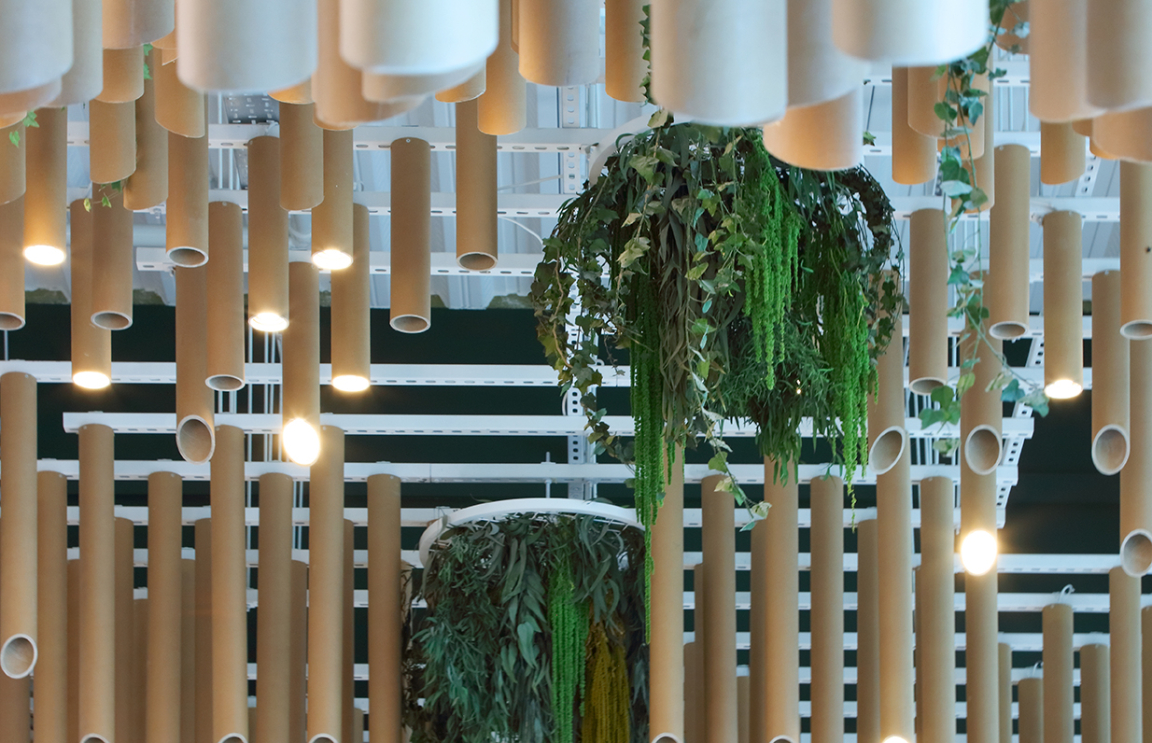
Credit: Pip Rustage
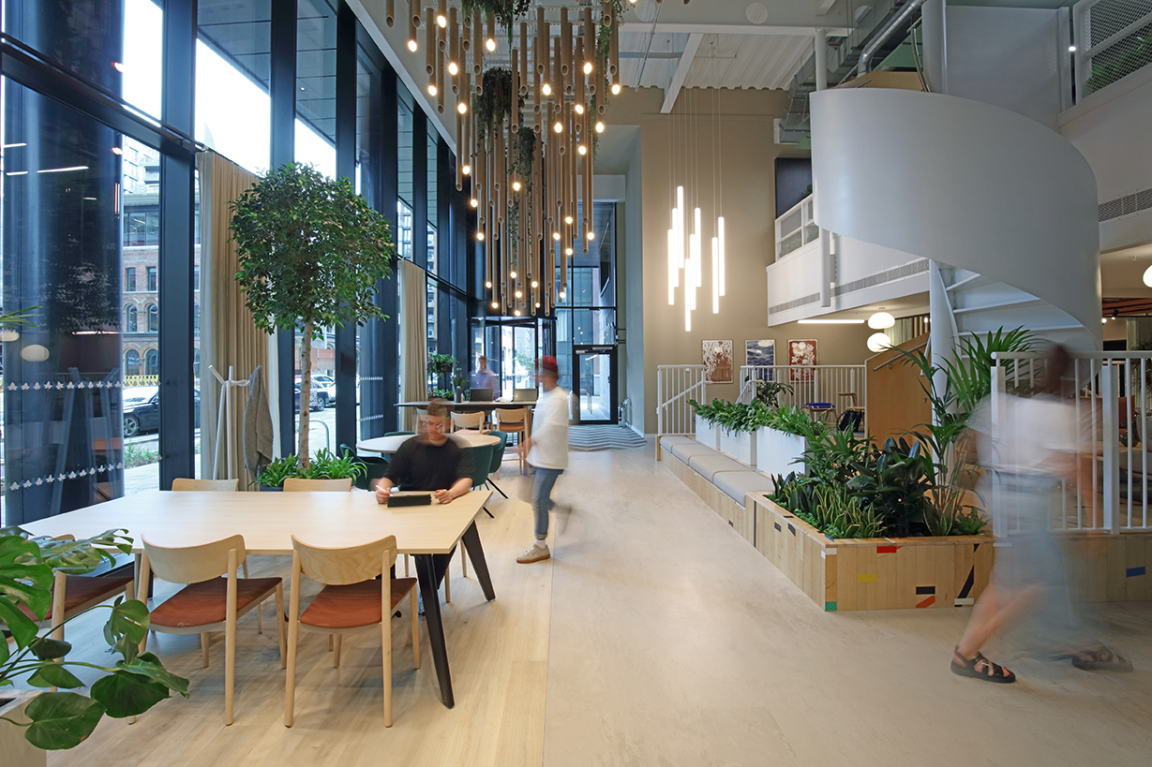
Credit: Pip Rustage
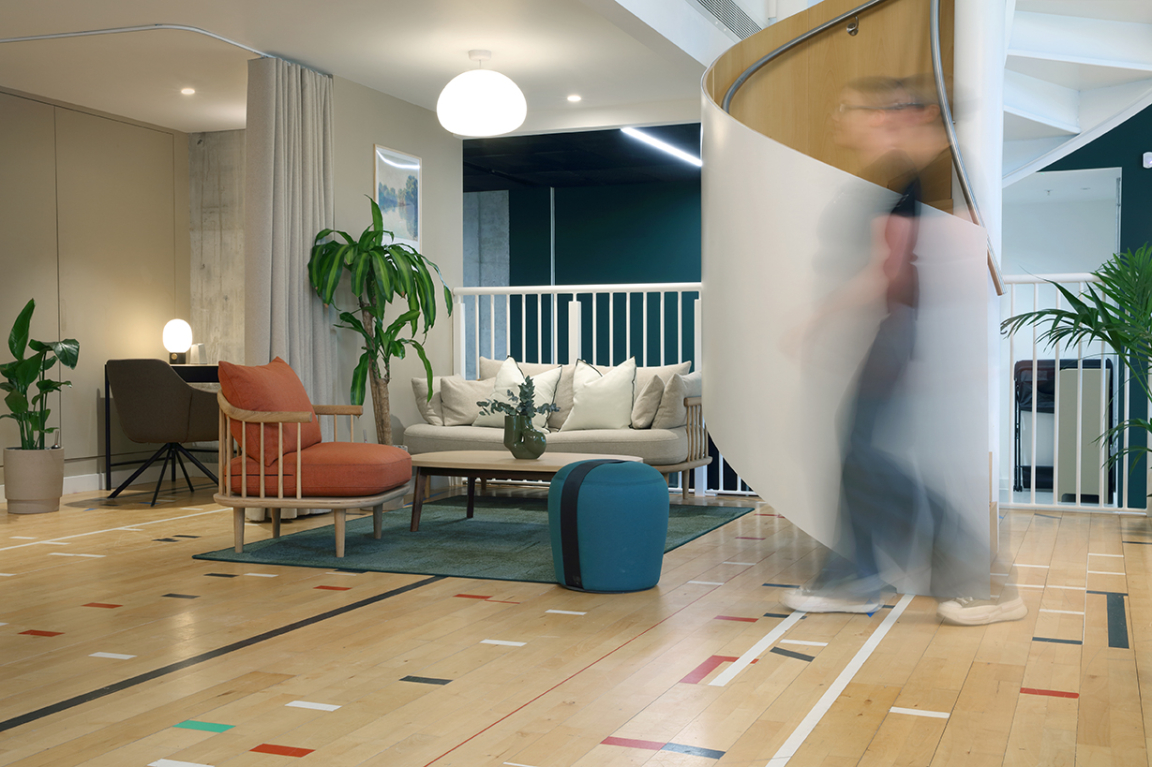
Credit: Pip Rustage
At the centre of the scheme was to be a sculptural element to welcome all coming through the building's doors. John Williams, founder/director at SpaceInvader, explains: “We started by thinking about carbon reduction and embodying that approach through the creation of a central sculptural piece for the ground floor social hub space. This would serve as a focus point for tenants on entry and also as a way to draw attention from passers-by and attract users from the local community.
"The sculptural piece, created together with lighting specialists Light Forms, was inspired by close-up photos of carbon rods and consists of recycled tubes and suspended rods with a bespoke-designed LED fitting. We also used natural materials throughout as part of our approach, including a recycled gym floor and cork for the acoustic panels in the F&B space.”
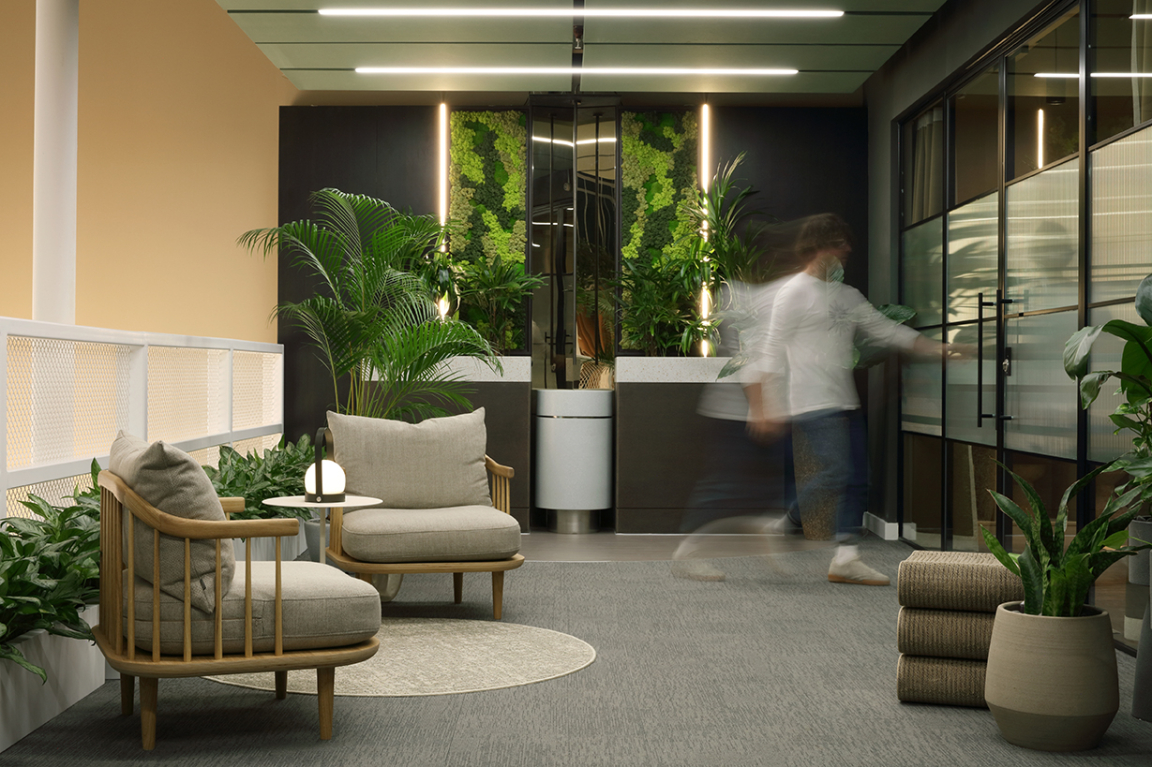
Credit: Pip Rustage
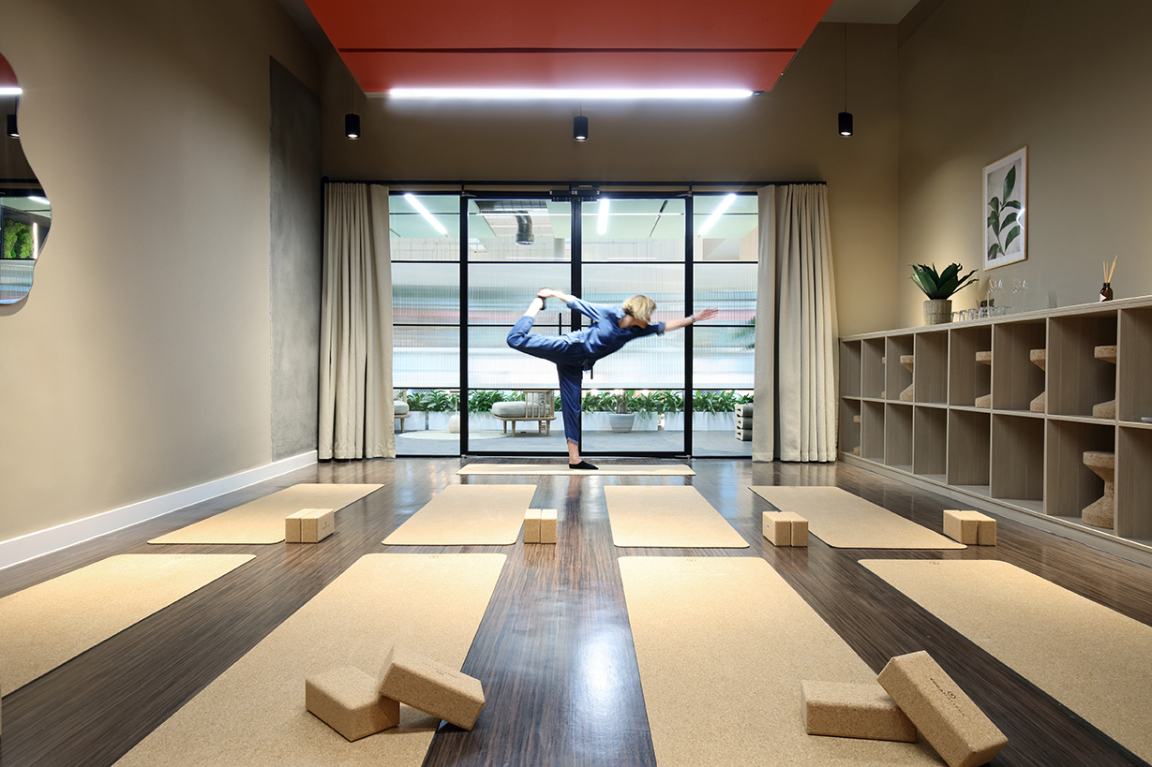
Credit: Pip Rustage
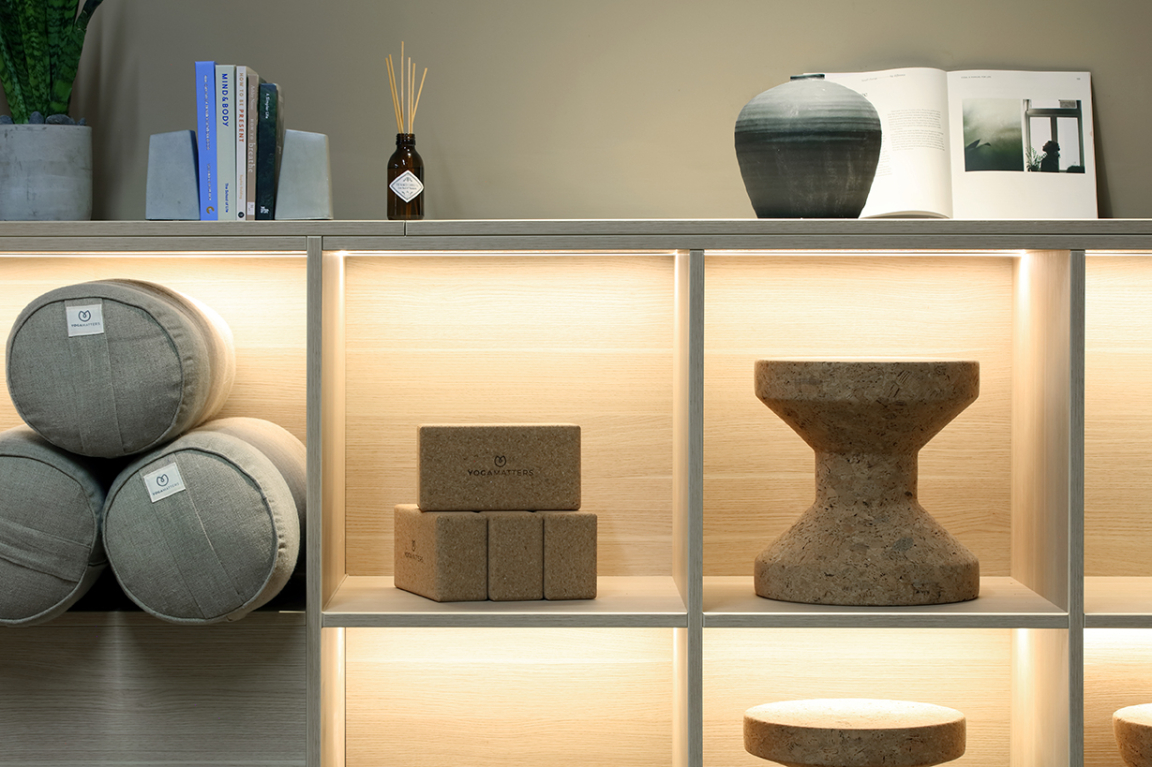
Credit: Pip Rustage
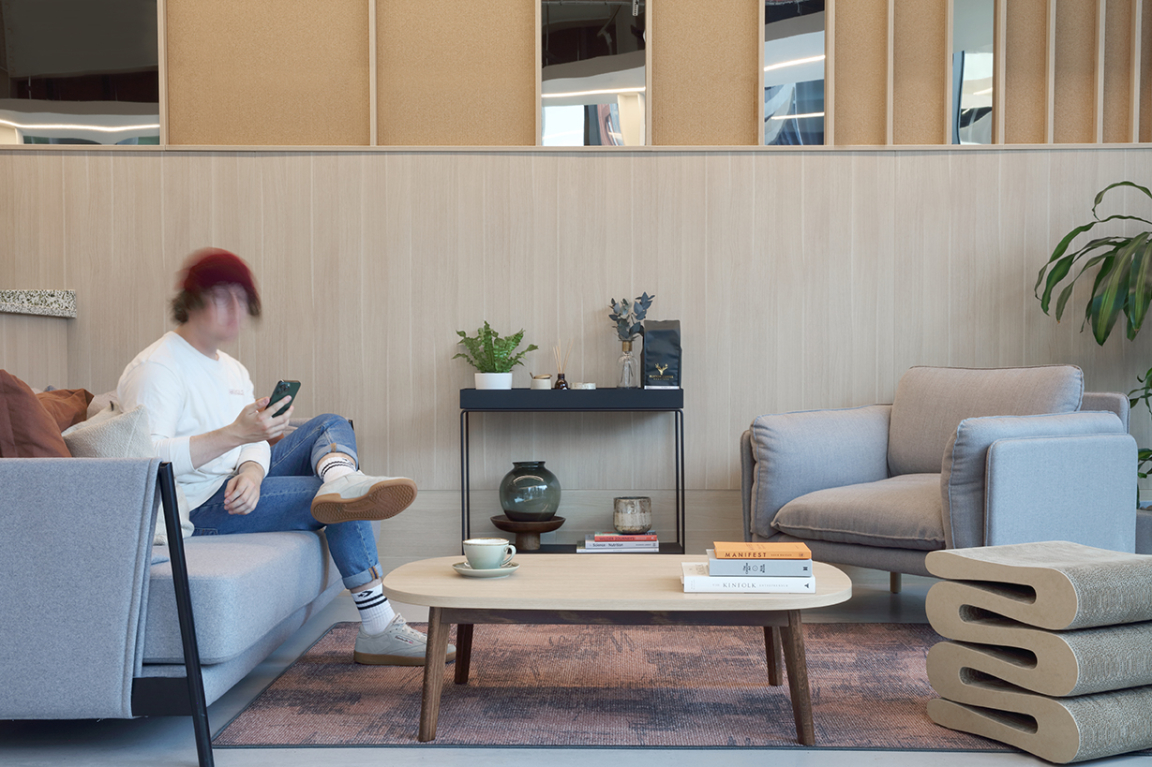
Credit: Pip Rustage
As such, on entering the space, visitors are met with a large tubular light sculpture suspended from the ceiling, inspired by photos of carbon rods and made of recycled tubes and suspended rods with a bespoke LED fitting - crafted together with Material Source partner, Light Forms.
Elsewhere, the lighting design for the scheme was required to create a variety of zones with different moods for task-oriented work or relaxation. The amenity lighting, as with the ground floor sculptural installation, was all developed with Light Forms' director, Paul Shoosmith.
To enhance the scheme’s human-centric experience further, the majority of the light fixtures have tuneable white LEDs, allowing the colour temperature of the space to change to suit the environment and reflect natural circadian rhythms. All architectural fixtures are also DALI dimmable, enabling complete control of the light output and energy consumption throughout the space.
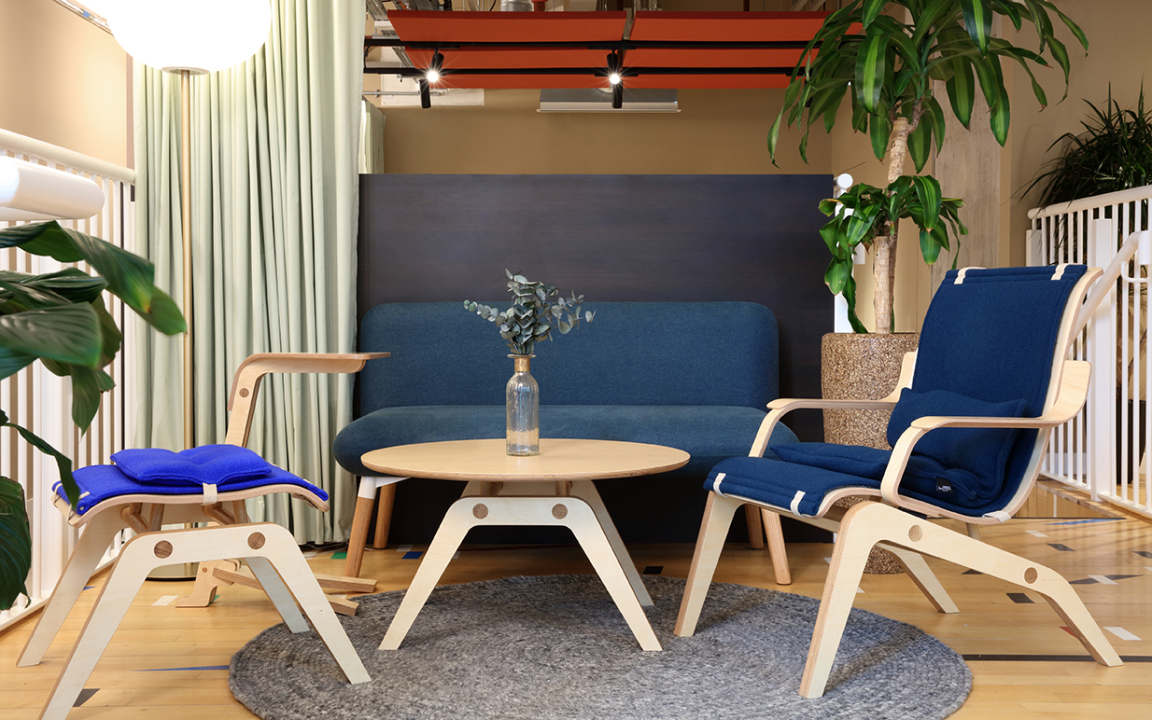
Credit: Pip Rustage
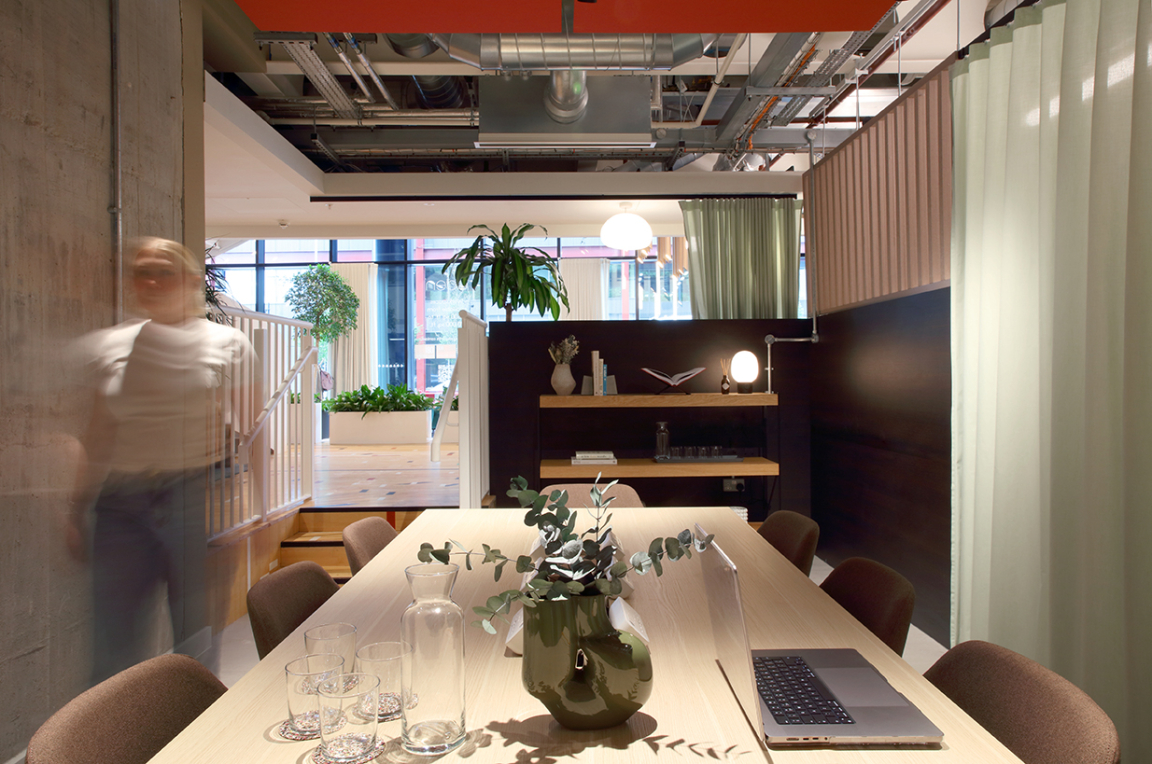
Credit: Pip Rustage
An elevated platform directly opposite the entrance creates a more private level for retreating for a phone call or lounging with a coffee. This includes a zoned-off quiet room and a bookable 8-person meeting space. The platform itself is made of the same re-used Junckers recycled gym flooring used throughout the building - a lovely retro touch.
The co-working area is intended as a place for social interaction and collaboration: somewhere employees and visitors can have informal meetings. Furniture here is varied to suit different length tasks. The event space is provided as an opportunity for giving people the chance to develop and grow. The café space is now operated by local operator Spice & Grind.
The mezzanine canopy area, accessed via the rear platform, is a place to escape from the bustling ground floor. This area is a low sensory threshold, with colours, textures, lighting and smells that are quieter and softer to create a calming atmosphere. A canopy effect in the mezzanine is created via planting in the ceiling and a self-replenishing water station encourages users to bring their own water containers.
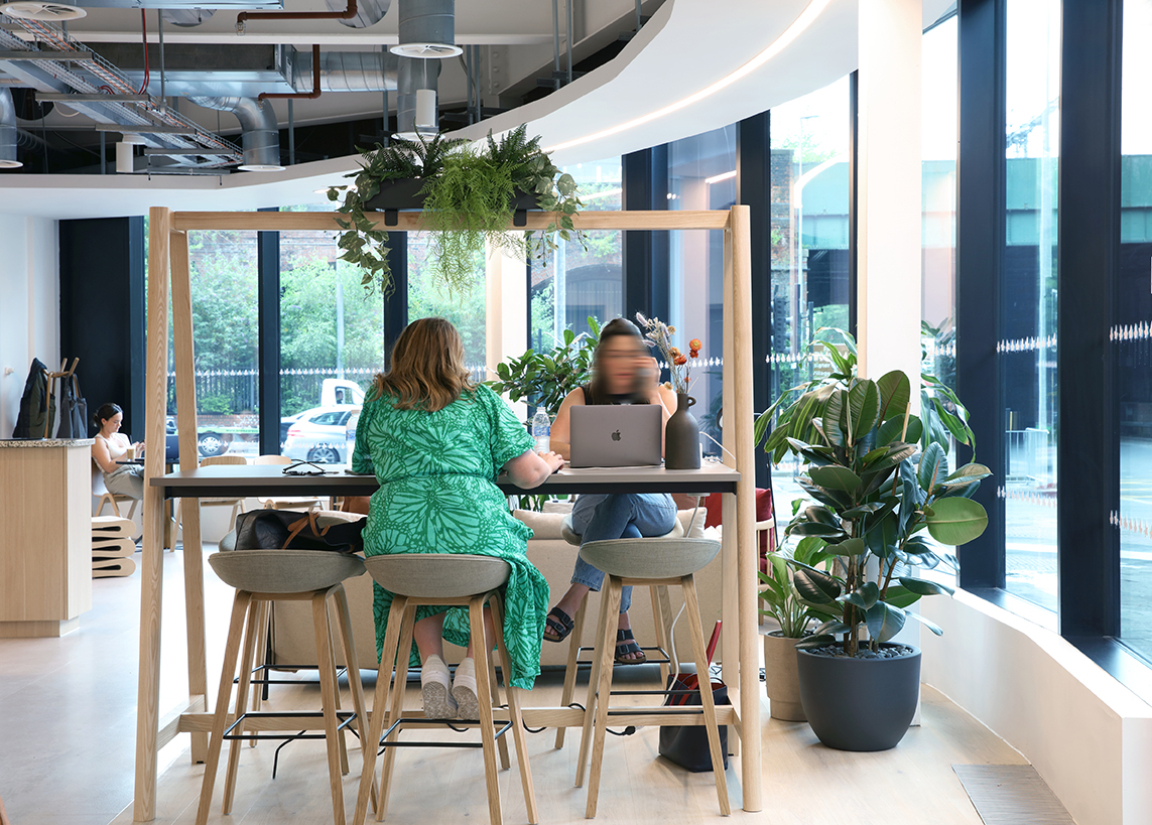
Credit: Pip Rustage
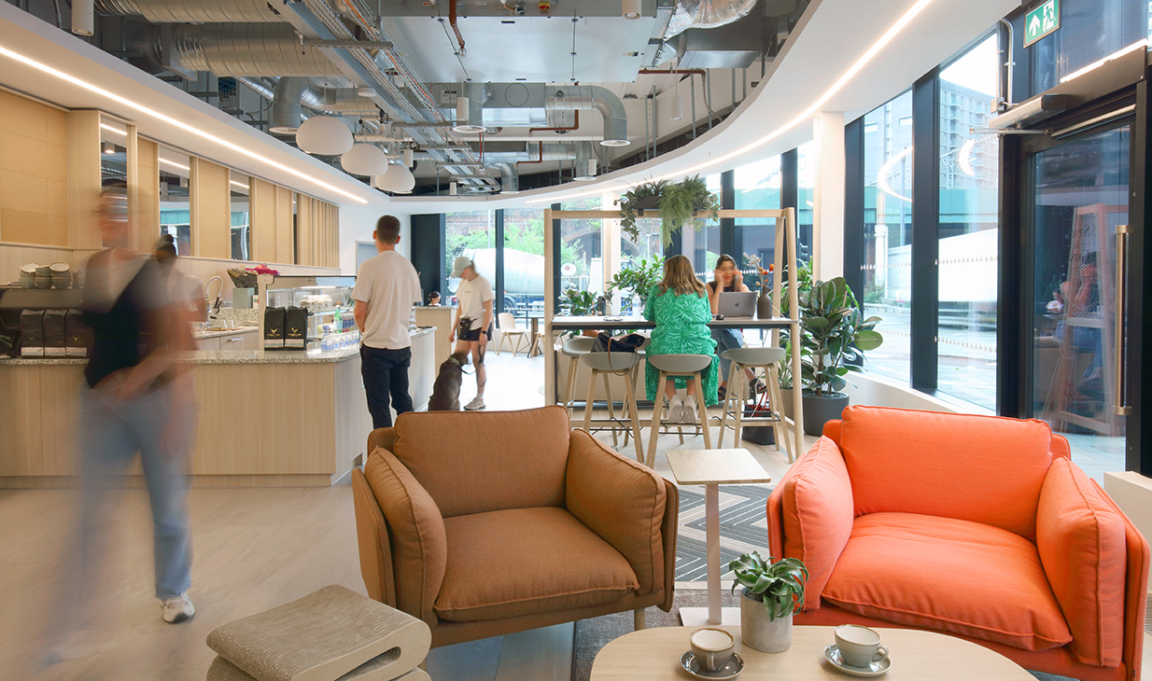
Credit: Pip Rustage
Marrying the interior of the building with its vibrant outer, planting is featured throughout SpaceInvader's scheme. Troughs and plants known for climbing will create a green wall over time by wrapping around the balustrade.
On the theme of wellness, the canopy space also incorporates a treatment room and a full-size studio, featuring a sustainable and adaptable vinyl floor, to cater for a variety of wellness-related activities and treatments. The latter can also be booked as a presentation space, with a joinery unit that allows for yoga mats and small stools to be stored out of sight, embodying the scheme’s approach to adaptable spaces. A darker palette throughout the mezzanine area reflects this calm and meditative atmosphere, inspired by the concept of a tree house.
The building itself has been created by The English Cities Fund (ECF), a strategic partnership between master developer Muse, together with Legal & General and Homes England, the government’s housing and regeneration agency. Eden forms part of New Bailey, ECF’s wider £1bn, 50-acre Salford Central mixed-use regeneration masterplan.
“Watching Eden emerge on Salford’s skyline over the last two years has been an incredible journey", comments Phil Marsden, managing director North West for Muse. "We wanted the ground floor and mezzanine space to be a focal point for the building, attracting use from both tenants and the local community. We had to move away from the traditional office reception and create a space that could be used for collaboration, meeting, relaxing and events.
"The space also had to be done using sustainable materials and meeting the health and wellbeing aspirations for Eden. SpaceInvader got the brief right from the start and, once appointed, helped us develop this further. John and the team had some fantastic ideas and have done an incredible job of creating a very unique space at Eden", he adds.
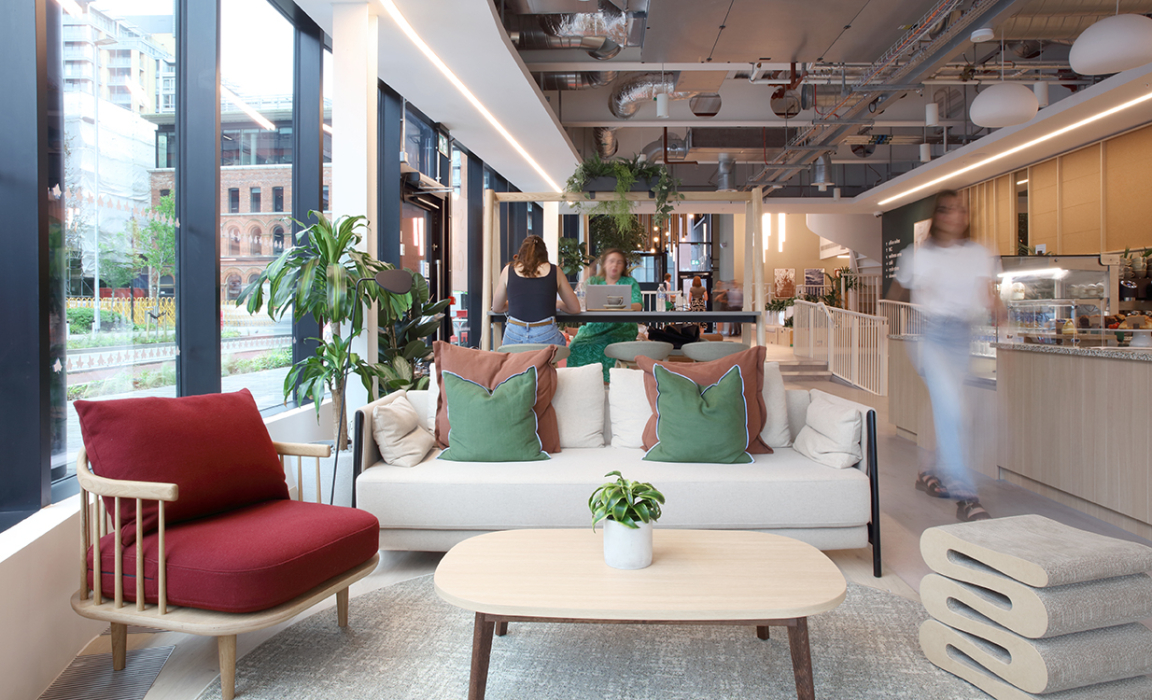
Credit: Pip Rustage
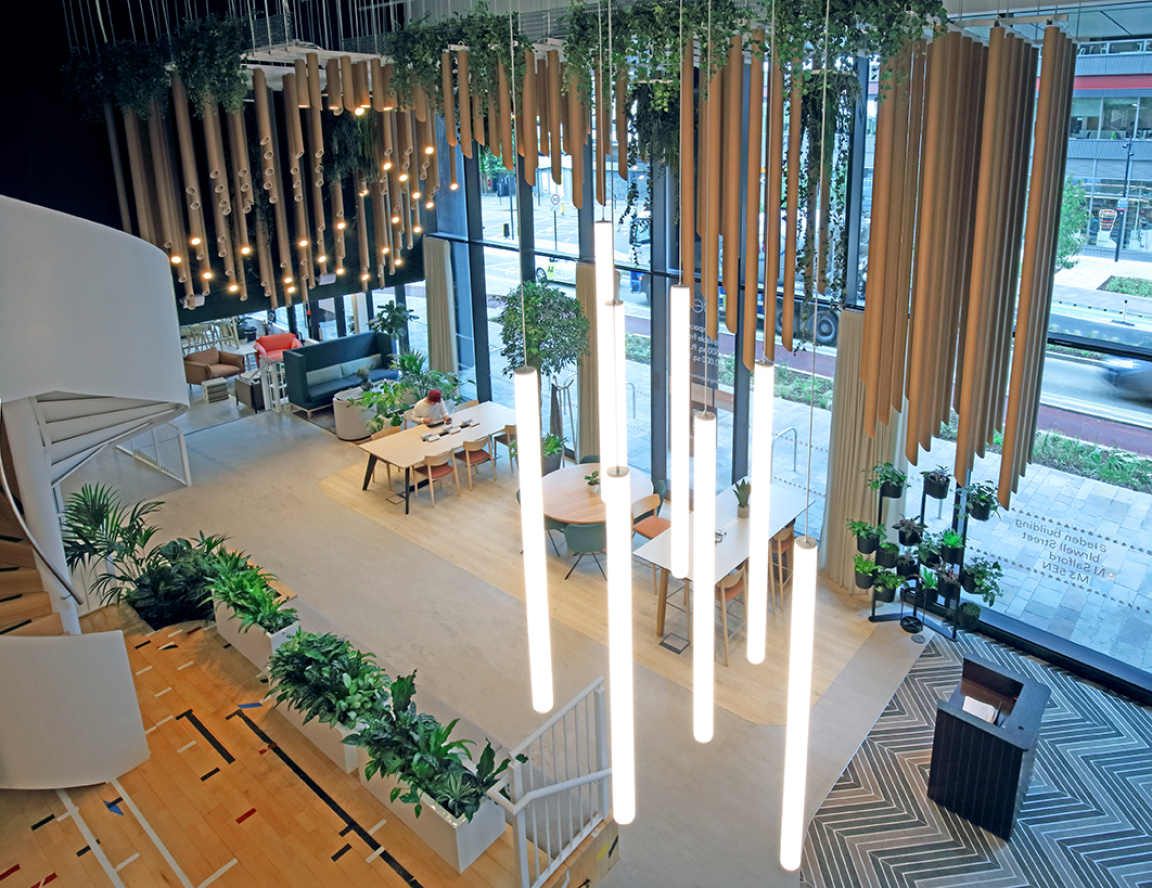
Credit: Pip Rustage
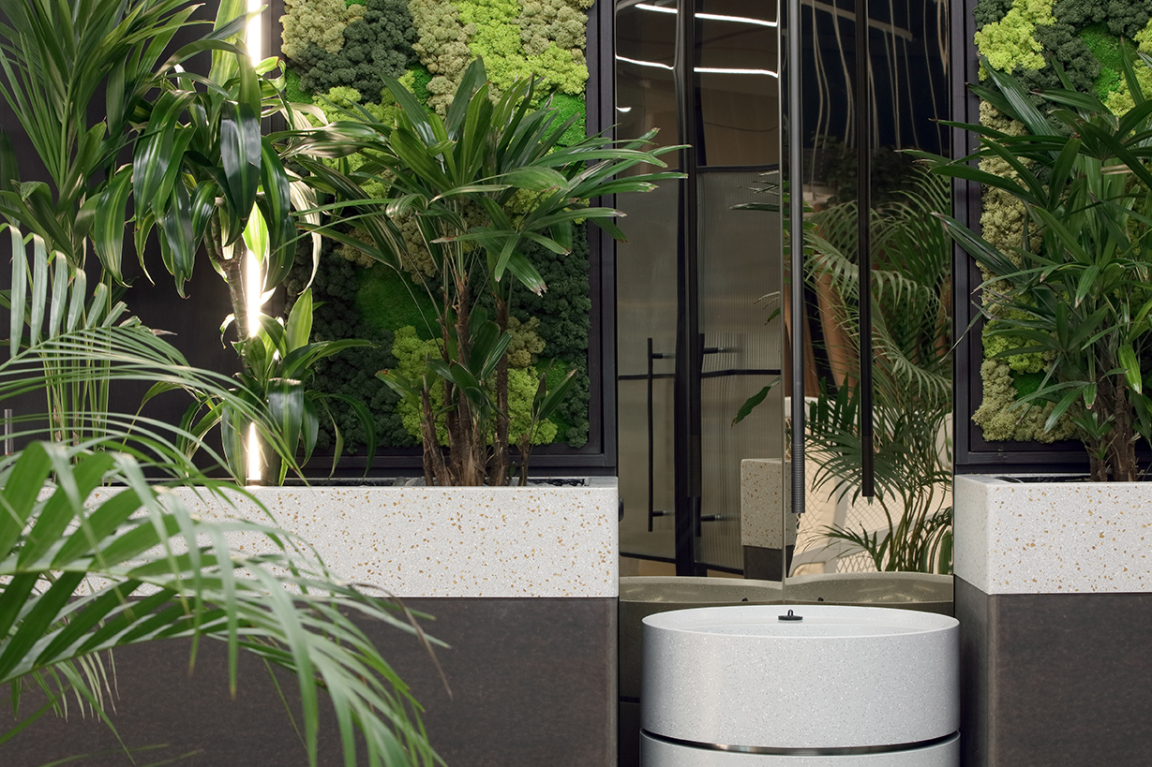
Credit: Pip Rustage
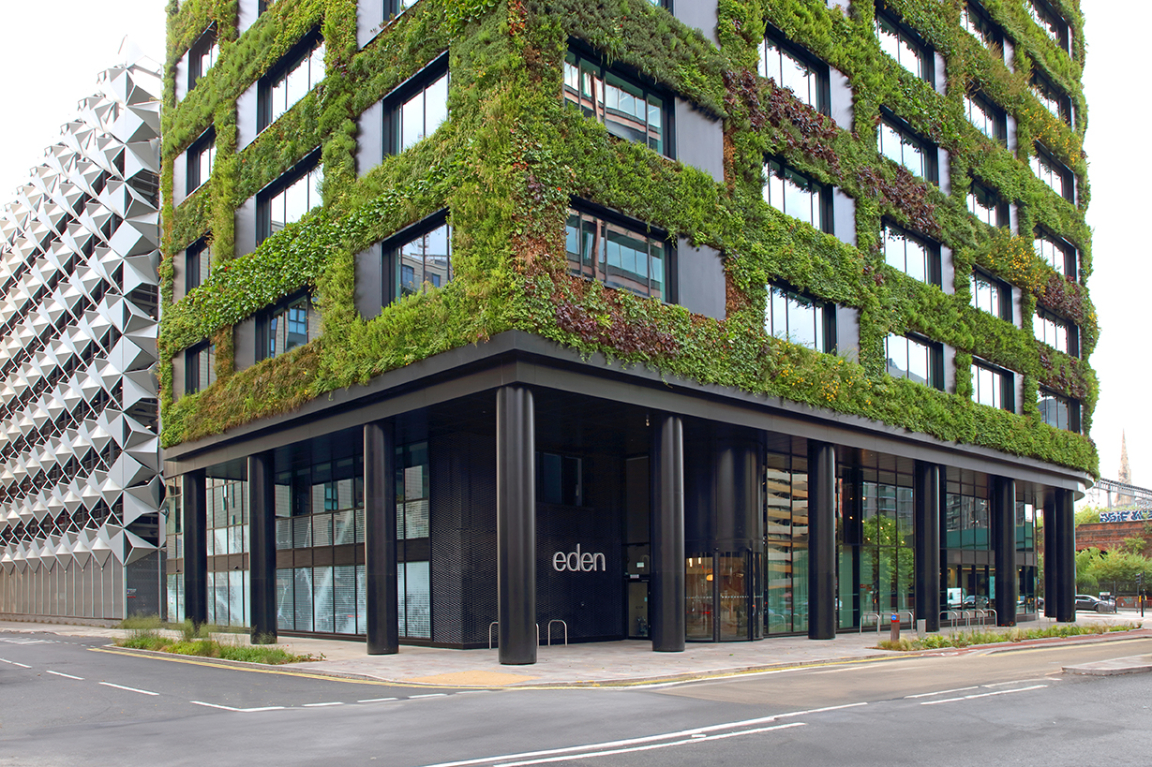
Credit: Pip Rustage
The 12-storey building was designed by architecture firm Make and is a LETI Pioneer project. It was created to achieve net zero operational carbon and to champion sustainability, resource efficiency and wellbeing at every level.
You can find out more about Eden, New Bailey here.


